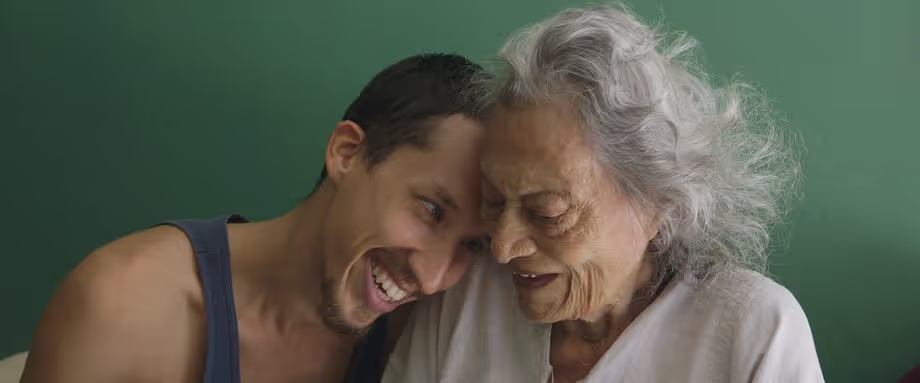América: Discussion Guide Discussion Guide: Aging and Public Policy
Discussion Guide: Aging and Public Policy

Rodrigo says that he gives América “the best quality of life I can,” but he questions the value of the brothers’ efforts to keep her alive because much of the time “she is not conscious. She operates under nothing but the most basic instincts.” How do you define quality of life? In your view, should quality of life be linked in any way to decisions about sustaining physical life?
Diego and Bruno reject the possibility of placing América in a nursing home where they fear “she would suffer, alone and afraid.” Instead, they put their own lives on hold to help their grandmother stay in a family home. Should public policy (or subsidies) favor one option over the other? What factors would you use to determine whether home-based or facility-based care is the best option?
Do you think that the government agencies entrusted with protecting the elderly acted in América’s best interest?
Diego explains, “What happened is that América fell from her bed. My dad, Luis, cares for her, but he wasn’t there. The neighbors heard her yelling for help and called the police. They found América on the floor, bleeding and confused. She seemed abandoned. My dad was accused of abusing a senior citizen and they took him to jail.” How would you distinguish between lapses in care and abuse? What clues could authorities use to tell the difference? Is imprisonment a just or useful solution to the situation?
Diego and Rodrigo suggest that police are quick to make arrests: “You could do something minor, and they’d send a helicopter.” “If they don’t like you or if you’re difficult with them, you’ll end up like Luis… Or worse.” Why might Bruno’s actions in the park have been perceived as abuse? What non-criminal responses could be implemented to improve care in such situations? If you could give officers training, what would you want them to know or do? What could Bruno have done differently to avoid this situation?
América says to Diego, “There are people who end up with nothing, right? Alone, abandoned... with nobody that loves you.” Are there ways that public policy could address this fear and ensure that no one ends up abandoned? Is ensuring the well being of aging adults and all those needing care a private responsibility to be handled by families, or a human right requiring robust public services and support from governments?
